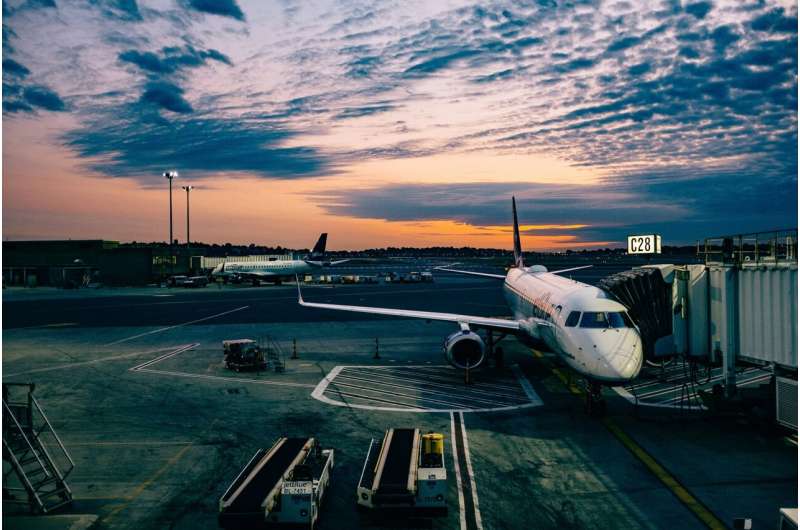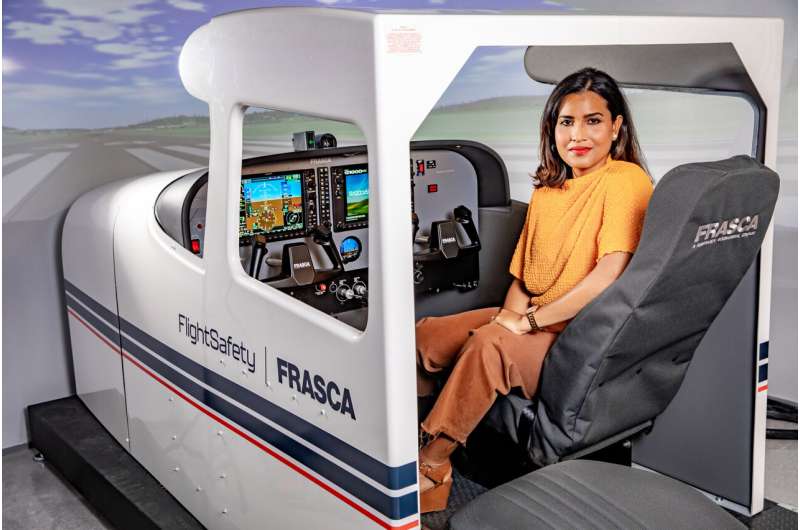
In the United States, there are, on average, four airplane crashes every day, primarily involving single-engine aircraft. Alarmingly, about 20% of these incidents result from the pilot losing control during flight, a situation the Federal Aviation Administration defines as “uncontrolled flight.” Tragically, nearly half of these cases end in fatalities.
Recent research led by Neelakshi Majumdar, a mechanical engineering assistant professor at the University of Arkansas, explores the causes behind these loss-of-control scenarios and how pilots can better manage or prevent them, potentially saving lives.
This study, published in the Journal of Air Transportation, is the first detailed survey that directly asked surviving pilots about their experiences with loss of control and the human factors that contributed. Close to 200 pilots took part in this survey.
Karen Marais from Purdue University’s School of Aeronautics and Astronautics co-authored the paper.
What Happens in the Sky
Pilots can’t always steer clear of situations where they lose control in the air, which can arise from various factors, including sudden weather changes. However, Majumdar’s findings suggest that many instances stem from pilot errors related to insufficient skills or poor judgment.
Common mistakes include flying too slowly, attempting to take off with an overloaded plane, misusing autopilot, neglecting to follow checklists, and failing to recognize when the aircraft is in a dangerous spin. While weather is unpredictable, pilots sometimes overlook vital weather updates or overrate their ability to navigate challenging conditions.
Previous studies on loss of control have mainly relied on data from the National Transportation Safety Board (NTSB), which documents accidents. However, the reliability of this information can be inconsistent.
“For some accidents, you might find a detailed account of what occurred, while for others, the details are sparse and broad,” Majumdar noted.

Interestingly, many pilots were reluctant to discuss their loss of control experiences.
“They’re often afraid of losing their licenses,” Majumdar said.
The participants in the study were predominantly older, with many being retired pilots who may have felt less apprehensive about sharing their insights.
Majumdar identified inadequate planning and the late recognition of dangerous situations as the most frequent causes of loss of control. Such lapses often hinder prompt corrective action.
Importance of Training
“One striking finding was that about a quarter of the pilots mentioned their training did not adequately prepare them for loss of control situations,” Majumdar said.
Many pilots admitted they were never taught how to recover from spins or spirals. Even those who did receive such training might struggle to apply their skills under pressure.
“In a real situation, how many people can actually execute the recovery within five seconds?” Majumdar asked.
A private pilot herself, Majumdar believes that utilizing flight simulators for training could significantly enhance pilot education on preventing and handling loss of control incidents while also cutting down training costs.
“General aviation isn’t as safe as it could be. We need to improve pilot training and education,” she stressed.
More information:
Neelakshi Majumdar et al, Human Factors in General Aviation Loss of Control: Survey of Pilot Experiences, Journal of Air Transportation (2025). DOI: 10.2514/1.D0432
If you would like to see similar Tech posts like this, click here & share this article with your friends!

